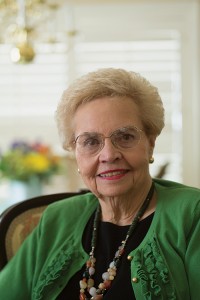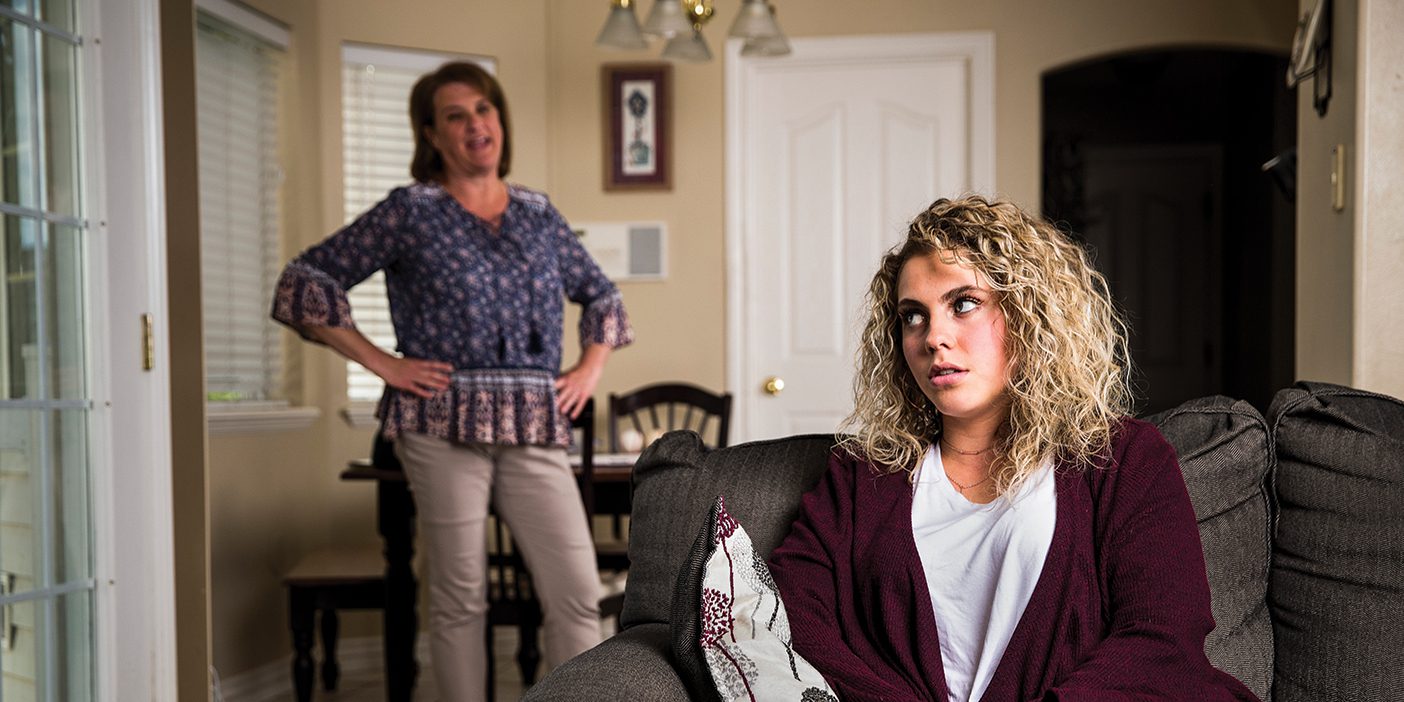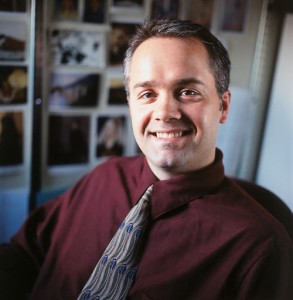Honorary alumna Daryl Hoole offers advice for raising respectful, self-reliant children.
If you had five minutes to speak to the women of the Church, what would you say?”
This was the question posed to author and homemaking expert Daryl Hoole after a Know Your Religion lecture several years ago in California. At the time Hoole did not have a ready reply. But on Nov. 14, 2012, after some years and “considerable thought,” Hoole shared her less-than-a-minute response with an audience gathered in the Hinckley Center Assembly Hall:
“Managing a home involves much more than keeping a house clean, organized, and attractive. These skills are important, and I’ve spent much of my life teaching women how to attain them, but these skills are only a means to an end. The paramount objective is to create a setting where family and friends are comfortable and happy, where there are good dinners and good times, where there is fun and laughter, where children acquire good habits and are taught life skills and how to be self-reliant and responsible, where challenges are faced by coupling temporal endeavors with eternal perspectives, where joy through gospel teaching and living prevails, where kindness and respect reign supreme, where love is strong enough to bind the family forever, and where children are nurtured toward eternal life.”

Designated an honorary alumna, homemaking maven Daryl Hoole gave sage counsel at a BYU lecture on raising responsible children.
These wise words come from a woman who has been advising homemakers for more than 50 years. Her first book, The Art of Homemaking, was published in 1962 and reissued in three editions and dozens of printings. Hoole wrote seven more books and became a popular speaker, giving her last Education Week lecture just a few years ago.
At the November Hinckley Center event, Elder Dallin H. Oaks (BS ’54) of the Quorum of the Twelve Apostles and BYU president Cecil O. Samuelson recognized Hoole for her “exemplary service and loyalty to Brigham Young University and its ideals as an educator, leader, and champion of the family” and designated her an honorary alumna of the university. In her address, Hoole detailed five dimensions of a positive home environment wherein children will grow and thrive.
1. Love and Listen
Parents should give their children their very best, not that which is left over, said Hoole: “Children will know they are loved and valued when their parents give them their time. A wise parent will take the time and interest to engage in active listening. Fathers and mothers will not only listen with their ears, they will also listen with their eyes.”
2. Be a Good Example
Hoole asserted that the greatest sermon any one of us will ever preach is the sermon of
our lives. “Certainly an excellent way to learn about being self-reliant and respectful is to be surrounded by people who are fine examples of both attributes,” Hoole said.
3. Be Respectful, Kind, and Caring
To teach children respect, we must do three things, said Hoole: 1. Exemplify respect through everything we do and say. 2. If children observe disrespect from any source, turn it into a teaching moment. 3. Have zero tolerance for any disrespectful act or word by our children.
4. Teach and Train
“It is mostly through assigning [children] age-appropriate chores and teaching them how to do them that obedience, respect, self-reliance, responsibility,
punctuality, creativity, and spiritual maturity can be developed,” said Hoole, explaining that she and her husband would assign “interrelated individual responsibilities for the good of the whole family [and] classify chores ac-cording to ‘required’ tasks and ‘hired’ tasks.”
5. Center in the Gospel
“In homes where the gospel is emphasized above everything else, children come to understand why the gift of eternal life is ‘the greatest of all the gifts of God’ (D&C 14:7),” Hoole said. “Preparing them to be worthy of that gift is of the highest priority. It matters so much, in fact, that nothing else can compare—nothing even comes close.”
—Michael R. Walker (BA ’90)
Web: Read Daryl Hoole’s full address on raising kind, independent children at more.byu.edu/Hoole.









